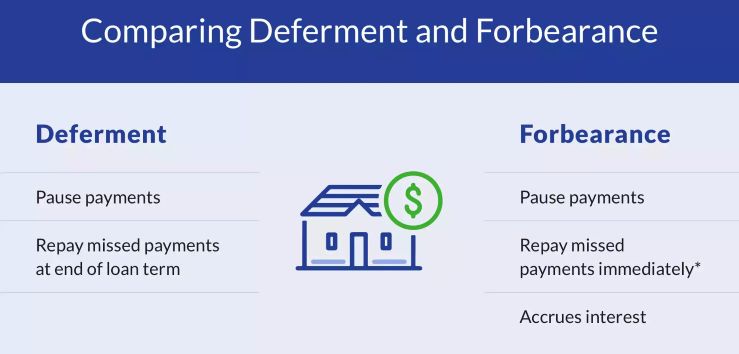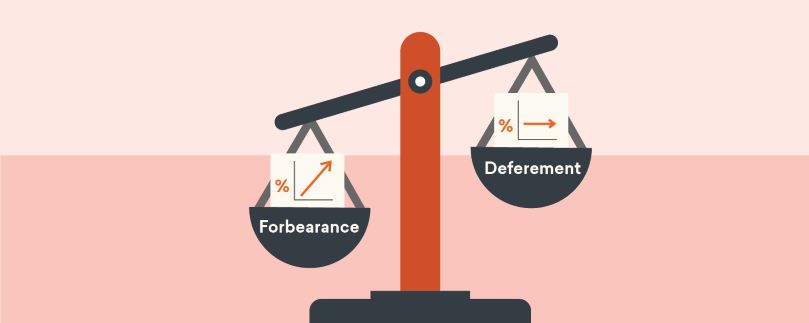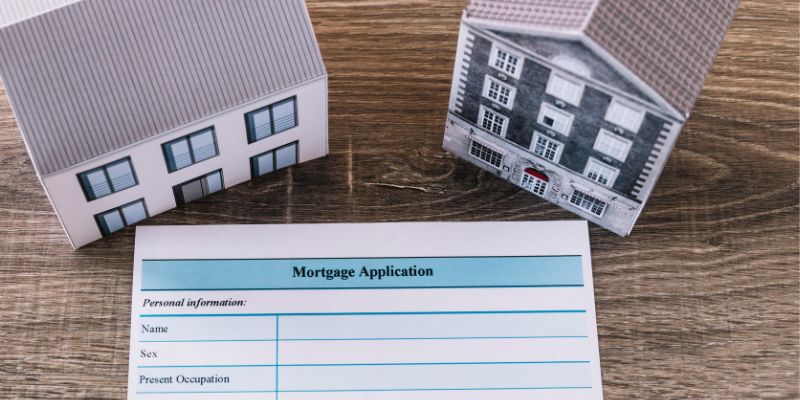A mortgage deferment may allow you to get back on track with your home loan if you've fallen behind on payments. With a mortgage deferral, any arrears may be added to the end of the term, provided you meet the requirements. Deferrals aren't always the ideal solution because of the benefits and drawbacks involved. Read on to find out what is mortgage deferment and mortgage forbearance. All right, let's get started.
Mortgage deferment: what is it?
Your regular mortgage payment may be deferred for a period of time, often ranging from 3 to 6 months. The deferred payments will be applied to the end of your term of the loan once the suspension period finishes or sooner if you sell or refinance the property. The purpose of a deferment is to offer a house owner who has fallen behind on payments more time to bring their account current. Lenders often waive the interest on delinquent mortgages to further assist struggling borrowers.
The Procedure of Mortgage Deferment
Homeowners who fall behind on their mortgage payments owing to temporary financial difficulties may be eligible for a mortgage deferral. By doing so, you may avoid incurring costly late penalties and damaging your credit from a missed payment. After deciding whether or not a deferment is warranted, your lender will inform you of the contract's specifics, such as the duration of the postponement and the new payment due dates.
Approval will result in the addition of any overdue payments to the conclusion of the loan's repayment term. For the duration of this moratorium, no interest will be added to outstanding balances. Mortgage forbearance durations average between three and six months. Nevertheless, homeowners who were adversely affected by the Covid-19 outbreak were allowed an additional 18 months to pay their mortgages. Student loans, auto loans, private loans, insurance premiums, &'' credit card payments are just some of the numerous monetary commitments that provide deferred payment options besides mortgages.
The Benefits and Drawbacks of Deferment
All past due payments will be tacked onto the conclusion of the loan period if you want to postpone your loan. Deferments are granted by lenders to save homeowners from losing their homes to foreclosure and further damaging their credit via late payment costs. When payments are deferred, interest is often not added during that time. You'll have to keep making mortgage payments beyond the original loan term length if you accept a deferral. It's important to think long and hard about whether or not your financial difficulties will be temporary before deciding to delay your loan payments; alternatively, you run the danger of falling farther back on your loan once you begin making payments. So, It's important to know what is a mortgage deferment.
Mortgage Forbearance Vs. Deferment

When homeowners run into temporary trouble making their mortgage payments, forbearance is a typical option. When you're facing momentary difficulties, it's wise to use this approach. Borrowers have options, including deferral, for making up the missing payment when the forbearance term expires. You will need to talk to your loan provider or servicer in order to make arrangements for forbearance and determine whether or not you are eligible for deferral. Don't quit paying without a written arrangement from your servicer. If you cease making monthly payments on your mortgage without an alternative payment plan that has been agreed upon, your lender may start the foreclosure proceedings.
What Effect Does Deferral Or Forbearance Have On Your Credit?
Your lender or provider would probably record the debt as current instead of a derogatory forbearance status, so there won't be any negative impact on your credit score. As long as you make your payments on time, a deferral or some other repayment schedule shouldn't have any effect on your credit score. Make sure you know what you are accountable for paying and when it is due before consenting to forbearance or some other type of relief, and ask your provider how the plan could affect your credit. Also, be truthful with yourself about whether or not you think you'll be able to resume regular payments. If that seems doubtful, you may always sell your house and go somewhere cheaper.
Which One Should I Pick?

Forbearance and deferral agreements on mortgages need you to take into account your existing and projected financial situations. Forbearing your debt may be the best option if the financial hardship you are now experiencing is expected to last no more than 90 days. On the other hand, delaying your loan payments until the conclusion of the loan term may be the best alternative if you believe that your present position will affect your capacity to make your skipped payments in addition to your normal mortgage payments. You should be completely honest with your lender no matter which choice you choose so that they can guide you in making the best possible selections about your repayment plan. Also, comprehend what is a deferment on a mortgage and forbearance before choosing one.




